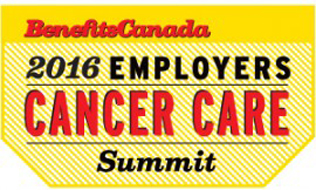
Despite all of the worries over costs, more than half of employers surveyed by Benefits Canada expect benefits to be more generous 20 years from now. The research, undertaken by Benefits Canada as part of its 40th anniversary celebrations, found 51 per cent of 191 executives at Canadian companies surveyed this spring hold that view. Another 37 per cent of […]

With incentives like a staff lunch on Fridays and free transportation to work, Toronto-based Flipp Corp. has tapped into some of the unique benefits and perks that can attract top talent in the competitive technology industry. The company, whose app allows consumers to access digital flyers from more than 1,000 retailers to plan their weekly […]

As part of its celebration of its 40th anniversary, Benefits Canada followed up on research undertaken five years ago into plan sponsors’ attitudes towards their pension and benefits plans. How do the results today compare to the 2012 findings? It’s no surprise that, according to Benefits Canada’s research, plan sponsors find costs the biggest challenge […]

In 1977, when Benefits Canada published its first group benefits providers report, the industry was much more crowded. The big companies on the scene today weren’t yet the massive entities that now dominate the market. More U.S. insurers had their hats in the ring. And the big players had yet to acquire some of the […]

As we celebrate Benefits Canada’s 40th anniversary, it’s a good time to look ahead to the next 40 years. Looking ahead, I see the inevitable trend of health benefits moving to a defined contribution approach from a defined benefit one. I expect the trend to mirror the developments in the pension area over the last […]

On one of the top floors of a non-descript building in downtown Toronto, Morneau Shepell Ltd.’s care access centre representatives are fielding intake calls, the first step in helping Canadian employees get help through their employee assistance program. Visually, it’s a typical call-centre environment, but the “magic happens on the phone,” says Lynn Pike, vice-president […]

While employees want good benefits, finding ways to effectively convey information about the plan can be a challenge, particularly when today’s workforce is far from homogeneous. Employees are different ages and at disparate stages of life. They may be from various ethnic backgrounds and speak different languages. Another distinction is union versus non-union settings where […]

Canadian Tire Corp. was an early adopter of profit sharing as a way to include all of its employees in the success of the company, but a big feature of the program that sets it apart is its use as a retirement savings account that automatically registers employees. “We do believe we have quite a […]

How do employees with cancer feel about their benefits programs during treatment? What new treatments are emerging that will affect the workplace? With panels of experts and exclusive research on employee experience in the workplace with cancer, Benefits Canada’s 2016 Employers Cancer Care Summit helped employers boost their knowledge of the challenges they’ll be facing. […]

The majority of expatriates are executives who take foreign assignments at their employers’ request. They’re generally well compensated in exchange for temporarily pulling up stakes. But money isn’t enough. Employers shouldn’t underestimate the adjustment involved in relocating. To improve the odds of a successful posting, companies must assist expats before, during and after the transition. […]